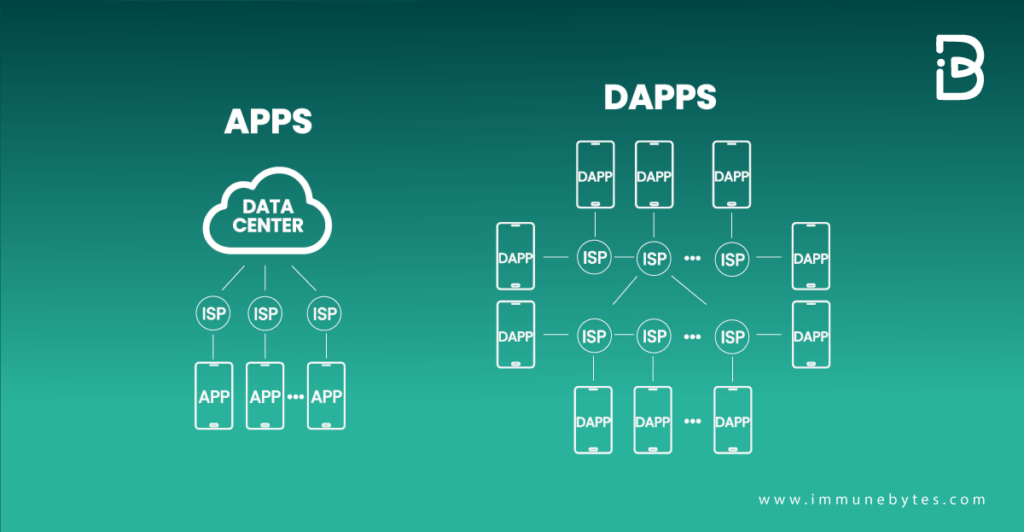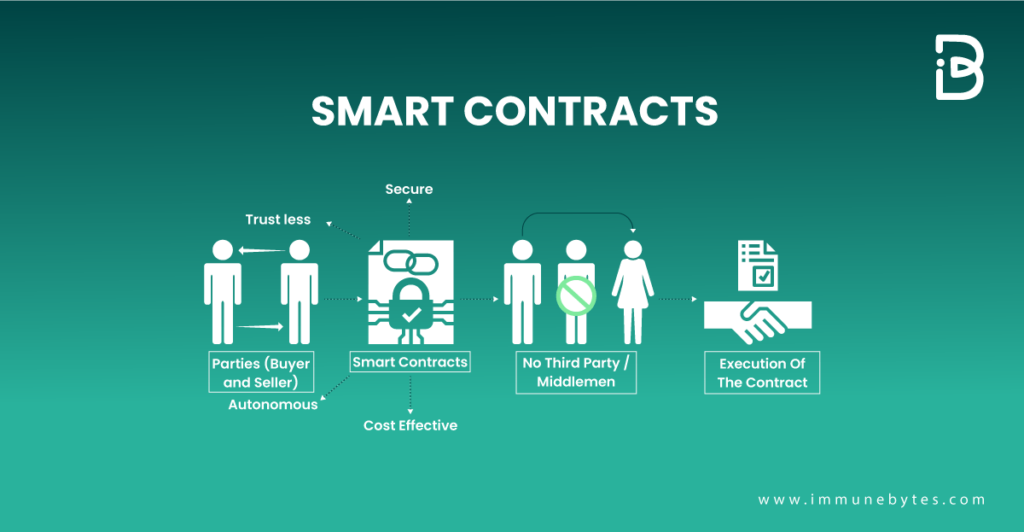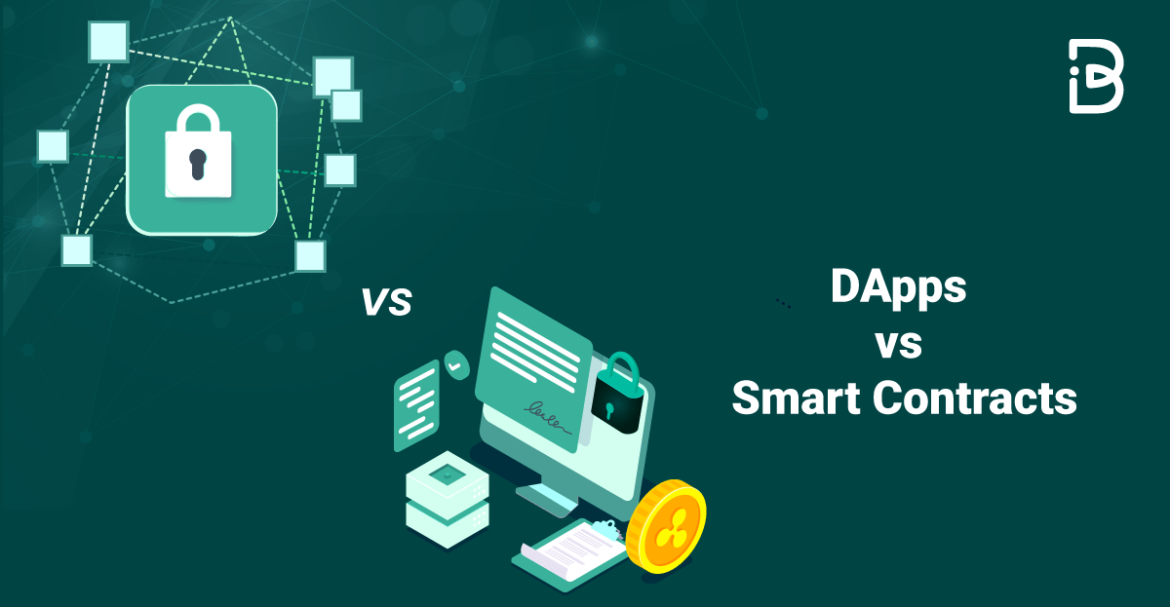With the acceptance of blockchain on the rise, its diffusion in almost every sphere of life is becoming a reality. The decade has observed an increase in the number of new protocols entering the blockchain world.
Every platform promises a unique use case. For instance, Ethereum designated itself as the primary supporter of DApps with the introduction of smart contracts.
Being an open-sourced set of codes, smart contracts played an instrumental role in supporting many innovations, including DApps, Defi, Crypto-tokens, NFT, and many more.
Through this blog, we will discuss two crucial domains of blockchain, i.e., smart contracts and DApps. Also, we will analyze their differences and similarities along with their merits and demerits.
What are DApps?
Table of Contents
Decentralized applications, also known as DApps, are digitized permissionless programs installed and operated on a Blockchain network. DApps, as the name implies, exists on a peer-to-peer network of computers and are not subject to a central authority.

The ability of an application to protect user privacy is central to DApps. DApp users need not provide personal information to use DApp’s services. Here, Smart contracts facilitate transactions between two unidentified parties without the need for centralized authority.
What are Smart Contracts?
Smart contracts, or transaction protocols, are self-executing contracts coded to enable, authenticate, and impose distinctive functions on a blockchain network. Transactions through a smart contract are completed upon meeting the conditions pre-specified in the contract.

Smart contracts act as the working mechanism behind the applications running on the blockchain.
Difference Between DApps and Smart Contracts
To understand the blockchain in its entirety, a few building blocks need to be attended to first. Smart contracts and decentralized applications are two important pillars of the blockchain network. In the next section, we will be discussing DApp vs smart contract to have a clear understanding of their working.
Smart Contracts Vs DApp

- While DApps are applications running on a blockchain network, smart contracts are the power source for these DApps. Smart contracts act as an interface between DApps and blockchain networks.
- Smart contracts are simply code that acts as a backend mechanism. Whereas DApp is like user interfaces that interact directly with the user.
- DApps run on smart contracts and connect members with providers directly. Basically, smart contracts are the entities that make a DApp work based on predetermined rules.
Pros & Cons of DApps & smart contracts
Next in line, we will consider the merits and demerits of smart contracts and DApps in the blockchain world.
Firstly, starting with smart contracts.
Pros of Smart contracts:
- These self-executing codes stored on a decentralized web are immutable and hence reliable.
- Transactions applicable through smart contracts are transparent and verifiable by all the stakeholders involved.
- Makes the requirement of a middleman or a centralized authority completely redundant. Hence, it is a trustless interface.
- Reduced cost due to removal of intermediaries.
- High execution speed due to the use of computational models in blockchain applications rather than bureaucratic processes
Cons of Smart contracts:
- Smart contracts are programmable code that leave the scope of human errors.
- These contracts usually deal with financial transactions; hence if exploited for vulnerabilities can cause severe monetary collapse.
- An advantageous immutability property has an attached discrepancy that prevents projects from making changes in case of detected bugs.
Moving on to the pros and cons of DApps:
Pros of DApps:
- Open source software
- Decentralized consensus removes the need for an intermediary
- No centralized point of failure
- Trustless computation
- Almost negligible downtime
Cons of DApps:
- Difficult to maintain, especially if there is any bug in the underlying code or smart contract
- Periodic news of network congestion in decentralized applications.
- Performance overhead
Must Read: Dapps Security: What it is?
Do DApps use smart contracts?

Undoubtedly, yes.
Smart contracts lie at the core of a decentralized application. They are sets of code that determine the conditions based on which a DApp operates.
Smart contracts serve as an API(Application Programming Interface) that acts as a point of connection between the underlying blockchain network and the decentralized application.
Sum Up
Ethereum stepping into the blockchain Universe gave momentum to the usage of smart contracts. This eventually led to Ethereum being informally called the Mother of DApps.
The decentralized application provides a trustless, peer-to-peer user experience with smart contracts.
With the increasing use cases of decentralized applications and smart contracts, it is critical to pay close attention to security to avoid future catastrophes. DApp audit and smart contracts audit are necessary components for determining blockchain security.

